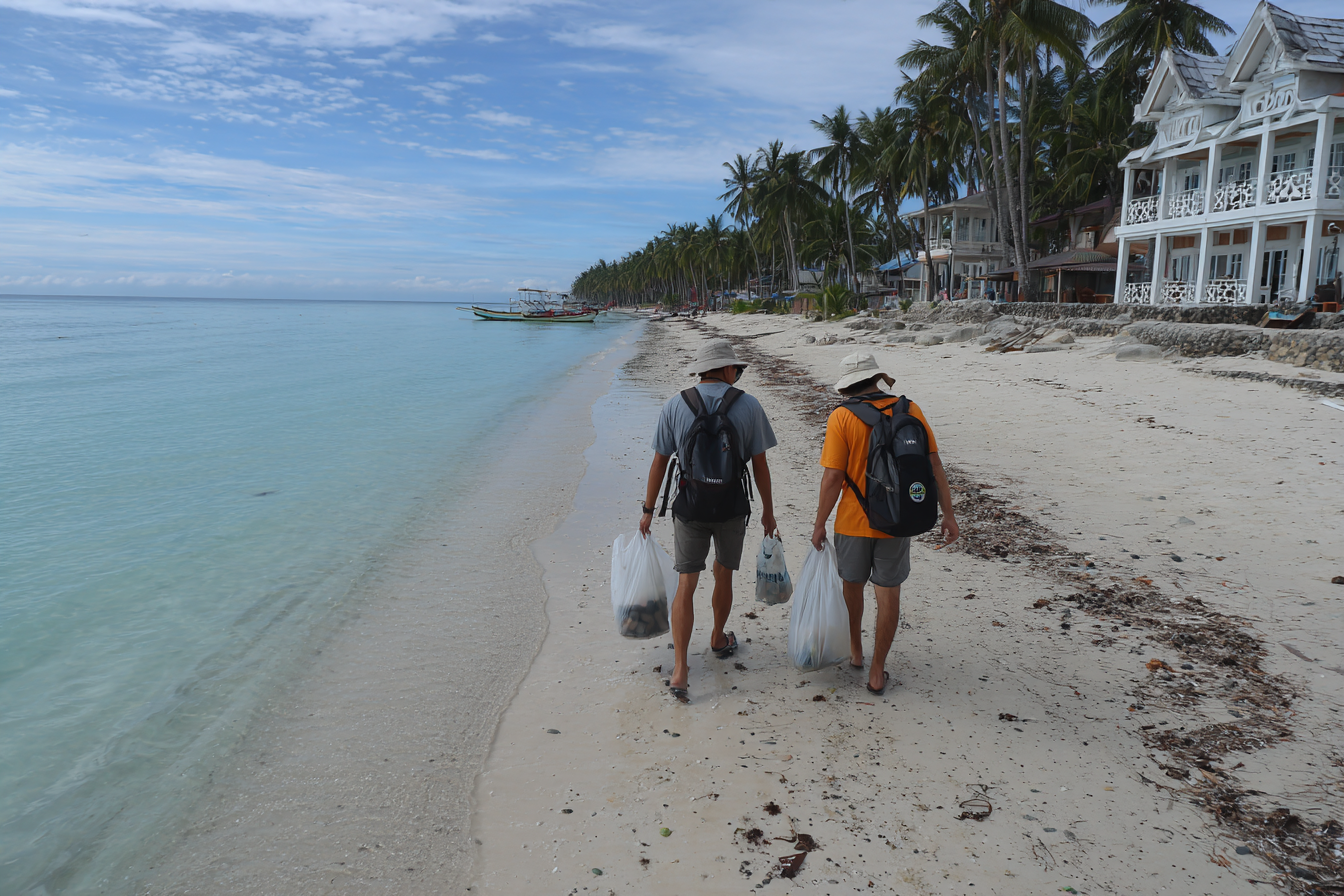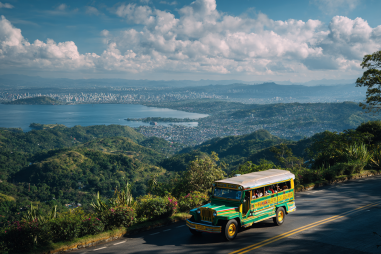Exploring the pristine beaches and lush landscapes of Bantayan Island offers a delightful escape. But while enjoying this tropical paradise, it’s essential to travel in a way that protects and preserves the island’s natural beauty. Sustainable travel practices and eco-tourism initiatives play a vital role in ensuring that future generations can continue to experience all that Bantayan Island has to offer. This guide will walk you through the principles of eco-tourism, highlight Bantayan Island’s unique environment, share tips on how to reduce your environmental footprint, and introduce you to local projects that support sustainable tourism.
What is Eco-Tourism and Why Is It Important?
Eco-tourism is a form of responsible travel that focuses on enjoying natural environments in a way that conserves the ecosystem, supports local communities, and educates visitors about the importance of sustainability. Unlike traditional tourism, which can sometimes lead to environmental degradation and cultural disruption, eco-tourism aims to minimize negative impacts while maximizing benefits for the destination and its residents.
On islands like Bantayan, where natural resources are limited and vulnerable to overuse, eco-tourism is especially crucial. It helps protect delicate marine habitats, coral reefs, forests, and wildlife, while also fostering a deeper connection between travelers and the local culture. By choosing eco-friendly options, tourists contribute to conservation efforts and promote sustainable livelihoods for communities that depend on tourism.
Bantayan Island’s Natural Environment and Conservation
Bantayan Island, located in the Visayas region of the Philippines, is renowned for its white sandy beaches, crystal-clear waters, mangrove forests, and vibrant marine life. Its relatively undeveloped landscape offers a refuge for various species of birds, fish, and other wildlife. The island’s ecosystems provide essential services such as coastal protection, fish breeding grounds, and carbon sequestration.
In recent years, local organizations and government bodies have put increased emphasis on conserving these fragile ecosystems. Conservation efforts include protecting mangroves, implementing marine protected areas, and promoting sustainable fishing practices. These initiatives not only safeguard the island’s biodiversity but also enhance its resilience against climate change and natural disasters, making eco-tourism a practical and necessary approach for visitors and locals alike.
Eco-Friendly Accommodations and Tours on Bantayan Island
Finding eco-friendly accommodations is a key part of sustainable travel. Many resorts, hotels, and guesthouses on Bantayan Island now adopt green practices such as using solar power, managing waste responsibly, and supporting local food suppliers. Choosing such accommodations helps reduce your carbon footprint while encouraging the industry to adopt sustainable standards.
In addition to eco-conscious places to stay, eco-tours are gaining popularity on the island. These include guided snorkeling trips into protected coral reefs, bird watching tours in mangrove forests, and visits to organic farms or sustainable fishing villages. These tours emphasize low-impact activities, proper environmental behavior, and educating tourists about the local ecosystem and culture.
Community-Based Tourism Projects
Community-based tourism (CBT) actively involves local residents in tourism activities, empowering them to manage resources and benefit economically from visitors. On Bantayan Island, CBT projects help strengthen community cohesion and preserve cultural heritage while promoting environmental stewardship.
Examples of such projects include homestay programs where visitors live with local families, handicraft workshops showcasing traditional skills, and community-led conservation initiatives. Participating in these experiences allows tourists to contribute directly to the welfare of local people and gain meaningful insights into island life.
How to Minimize Your Environmental Impact While Visiting
Travelers can take several simple but effective steps to minimize their environmental footprint when visiting Bantayan Island:
- Reduce plastic use: Bring reusable water bottles, bags, and containers to decrease single-use plastic waste which often ends up in the ocean.
- Respect wildlife and habitats: Avoid disturbing coral reefs, marine life, and nesting areas. Don’t collect shells or marine organisms as souvenirs.
- Conserve water and energy: Take short showers, turn off lights and air conditioning when not needed.
- Choose sustainable transport: Use bicycles, walk, or share rides instead of individual motorized vehicles to decrease emissions.
- Support local products: Buy souvenirs and food from local vendors to reduce environmental costs associated with imported goods.
By adopting these behaviors, visitors help maintain Bantayan Island’s natural beauty and reduce pressure on its resources.
Participating in Local Conservation Efforts
Many organizations on Bantayan Island welcome tourists who want to contribute to conservation projects. Activities may include beach cleanups, tree planting, coral reef monitoring, or educational campaigns on waste reduction and marine protection.
Getting involved not only enhances the visitor’s experience by fostering a deeper connection with the island, but also provides valuable manpower and resources to local initiatives. Be sure to reach out to local environmental groups or your accommodation to find out about ongoing volunteer opportunities during your stay.
The Benefits of Sustainable Travel for Bantayan Island
Sustainable travel benefits the island and its residents in numerous ways:
- Environmental preservation: Helps maintain biodiversity and ecosystem health, protecting natural attractions for future visitors.
- Economic empowerment: Encourages income generation for local communities through eco-tourism enterprises and CBT projects.
- Cultural preservation: Supports traditional lifestyles and promotes cultural pride by involving locals in tourism planning.
- Climate resilience: Enhances the island’s ability to adapt to climate change by safeguarding natural buffers like mangroves and coral reefs.
- Positive visitor experience: Promotes ethical and meaningful travel that builds respect and understanding between visitors and hosts.
Resources and Contacts for Eco-Tourists on Bantayan Island
To help plan a sustainable visit, here are some resources and contacts that provide information or assistance related to eco-tourism on Bantayan Island:
- Bantayan Island Tourism Office: Coordinates eco-tourism programs and community-based projects. Can recommend eco-friendly accommodations and tours.
- Local Environmental NGOs: Groups such as marine conservation organizations or mangrove protection groups often offer volunteer programs and educational materials.
- Eco-tour Operators: Look for tour providers with certifications or strong eco-tourism commitments who lead responsible snorkeling, bird watching, and cultural tours.
- Community Centers and Homestays: Contact local communities for CBT experiences, which typically involve direct communication with host families or artisans.
Reaching out before your trip helps align your travel plans with sustainable practices and supports local efforts effectively.
By embracing eco-tourism principles and supporting sustainable initiatives during your visit to Bantayan Island, you become a part of preserving this natural haven for generations to come. Your responsible choices—whether in accommodation, activities, or daily habits—can make a meaningful difference in maintaining the island’s vibrant ecosystems and thriving local communities. Travel thoughtfully, explore responsibly, and enjoy the beauty of Bantayan Island in a way that honors and protects its precious environment.







